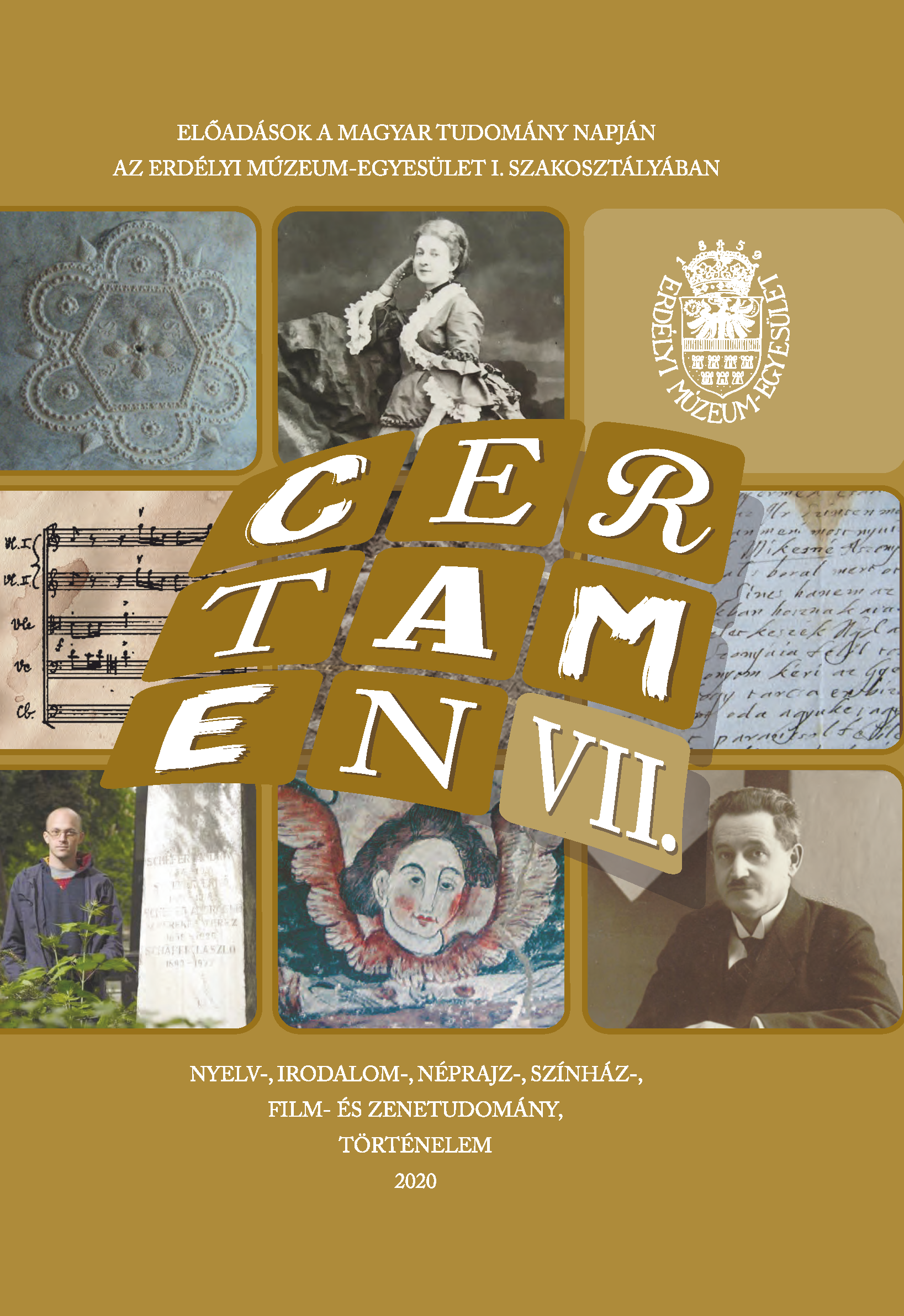Kéznyomok és visszacsengések – Farkas Ferenc kolozsvári évei
The Relevance of the Years in Cluj in the Oeuvre of Ferenc Farkas
Author(s): Miklós FeketeSubject(s): Music
Published by: Erdélyi Múzeum-Egyesület
Keywords: Ferenc Farkas; Cluj; 1941–1944; musical activity; compositions;
Summary/Abstract: The paper examines the short period (1941–1944) spent at Cluj in the context of the life and artistic activity of the composer Ferenc Farkas. Although these years were shadowed by the Second World War, the musical life of the city shows a great leap, and Ferenc Farkas’s artistic activities play a significant role in the prosperous musical life of the town. From the summer of 1941, the 35-year-old Farkas conducts the opera choir at the National Theater, preparing the widened and reorganized vocal ensemble for the major stage performances of the current opera season. In the meantime, he holds the position of professor of music composition (and later director) at the Conservatory of Cluj, thus becoming the professional guide of the young future composer, György Ligeti. Cluj’s bursting artistic atmosphere will be decisive for Ferenc Farkas, the composer as well. His oeuvre is marked and highlighted by a list of colorful, striking and original works from this period: the comic opera The magic cupboard, film music and incidental music compositions, neoclassical instrumental works based on old Hungarian melodies, compositions based on the pentatonic musical language or even exploring the twelve-tone technique; and a wide scale of compositions set on the verses of Transylvanian poets (including Lajos Áprily, László Szabédi, Jenő Dsida).
Journal: Certamen
- Issue Year: 2020
- Issue No: VII
- Page Range: 219-242
- Page Count: 24
- Language: Hungarian

